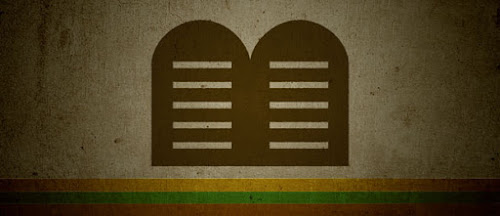A Purpose of the Law
The book of Deuteronomy is well known as the last book of the Pentateuch. The book itself, as stated by Hamilton is, “In relationship to the rest of the Pentateuch, Deuteronomy is considered something of an oddity”. (Hamilton p. 367)
While it may be true, that the position of Deuteronomy in its place with the first books of the Bible may seem odd, we must understand a few key point that the book itself points us to an order to understand and believe it’s validity as part of the Pentateuch.
Firstly, we can see that the book of Deuteronomy acts as a “doorway” of sorts to the rest of the old testament. While the book is not a narrative as many of the other books in the beginning of the scriptures, it makes the way for us to see the rest of the Old Testament in the correct light. We see that the book takes place during the, “two resting times are the times when God speaks (mostly through his servant Moses) definitively and extensively to his people. It is in these camping, less hectic times that God’s people learn to be still, listen, and discern the voice of God for their lives and future”. (Hamilton pp. 378-379)
Secondly, we need to see that it is here we see the link between the Israel of the wilderness, and the Israel that would go into the land which God had promised their father Abraham. Without the book of Deuteronomy’s place in the Pentateuch, we would leave see the children of Israel going into the promise land with no instruction, and without a fresh look at the obedience that was commanded them by God. It is here where we see the instruction to the children of Israel with the understanding, “that choice is obedience, the consequence is blessing; if that choice is disobedience, the consequence is curse”. (Hamilton p. 444)
It is also the words of the book of Deuteronomy that will shape the theology of the rest of the Old Testament, even extending into the days that their promised Christ would walk the earth. Hamilton states that it is, “The theological issue sounded in these chapters is one that provided a basis for serious theological reflection in Scripture itself, and it is an issue that continues to the present day”. (Hamilton p. 446)
We cannot lose site that it is in this transition that we find what Jesus says is the most important commandment of all. (Mark 12:28)
Jesus quotes from the book of Deuteronomy to explain the reason for the giving of the law. Like Deuteronomy which as the “gateway” to the Old Testament, it is in this book that we find the commandments on which all the law and prophets will hinge. To love the Lord our God, and to love our neighbor as ourselves. (Mark 12:30-31)
The purpose of the law, like the purpose of Deuteronomy is to point us to the fact that we are His people, and that He loves us. He has rescued us from bondage and freed us from the power of sin. It is for this reason, that we are called to love God, and to display that same love to the world around us.





Comments
Post a Comment